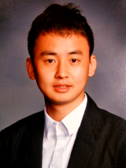Members

Malvina Nissim (Team Leader)
Malvina Nissim is Professor of Computational Linguistics and Society at the Faculty of Arts of the University of Groningen. She conducts research in several areas of Natural Language Processing, with a particular focus on the interplay of language technology and societal representations and needs.
UG Website | Personal Website | Twitter

Eedan Amit-Danhi (Team Coordinator)
Eedan Amit-Danhi, PhD is a Postdoctoral Researcher at the Centre for Media and Journalism Studies at the Faculty of Arts, University of Groningen. She studies the role of political visuals in the informational landscape of social media and the digital world.
UG Website | Personal Website | Twitter | Email

Rik van Noord
Rik van Noord is an Assistant Professor at the Computational Linguistics group at CLCG. He works on creating and evaluating resources for under-resourced languages, as well as ensuring that large language models are actually fair.

Benjamin T. Johnson
Benjamin T. Johnson is an Assistant Professor of humane artificial intelligence and International Relations in the Department of International Relations and International Organization (IRIO). He studies the security and ethics of AI, military AI, and its role in current and future conflicts.
UG Website| Twitter| Email

Herman Veluwenkamp
Herman Veluwenkamp is an Assistant Professor on Normative Ethics and the Digital Society at the Faculty of Philosophy. His research interests cover various topics, including metaethics, meaningful human control, conceptual engineering, epistemic dependence, metasemantics, and belief revision.
UG Website | Personal Website | Email

Yevgen Matusevych
Yevgen Matusevych is an Assistant Professor at the Computational Linguistics group, CLCG. He uses computational models to understand how humans learn their native and non-native languages, and how languages co-exist in the mind and in models.

Kun He
Kun He is a postdoc researcher at the Computational Linguistics group at CLCG. He works on geopolitics of AI, human-AI interaction, ethics of AI, AI disinformation, as well as populism and political communication in a digital society.
UG Website| Twitter| Email
| Last modified: | 27 May 2024 4.13 p.m. |
